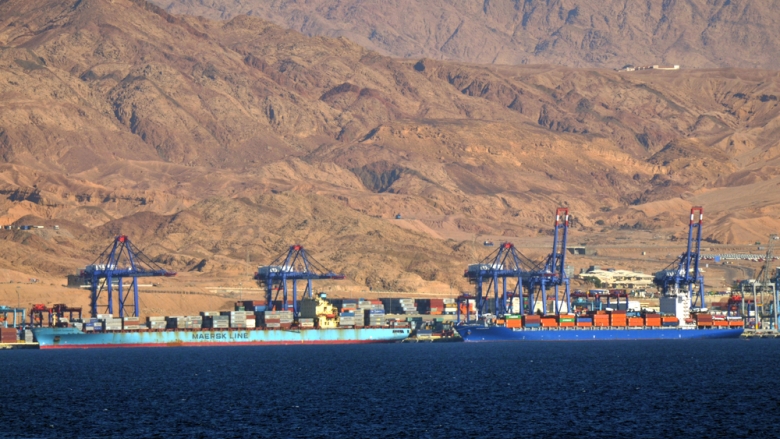While other emerging regions thrived, the Middle East and North Africa’s (MENA’s) aggregate export performance has been consistently weak over the past two decades. Using detailed firm-level export data—collected from Customs administrations—the publication, Champions Wanted, explains why.
A central finding of the book is that the size distribution of MENA’s exporting firms point to critical weaknesses at the top. With the exception of the top firms, MENA’s elite exporters are smaller and weaker than their peers in other regions. In MENA, the largest exporter stands at the top alone. It is like having a soccer team with only one champion footballer and the rest of the team made up of weaklings, unable to support the “number one”.
While this allows for some occasional successes, it is not enough to build the broad and diverse export base MENA needs.
Why have MENA countries failed to nurture a group of export champions that have critically contributed to export success in other regions? Part of the reason is the lack of a competitive real exchange rate. The damaging effects of an uncompetitive currency can be traced all the way down to firm level, hurting expansion of export volumes, products and destinations, and preventing exports take-offs.
This lack of heavyweight exporters at the top also reflects the region’s failure to energetically push for trade and business reforms. Analysis of the cronyism and corruption prevalent under some political regimes before the Arab Spring—and after it—confirms that close ties between businesses and governments led to allocation of favors to some firms and easily earned income (or rents). There was little evidence, though, that those firms developed into champions for their countries, capable of lifting the region’s export performance.
This should call for caution when pushing for any form of government intervention. In contrast, some interventions—such as export promotion programs—have had some positive effects on smaller exporters. However, because these firms are marginal in terms of trade, these programs cannot be game changers.
So what can be done? The success of MENA countries in promoting export growth and diversification, as well as generating jobs, depends heavily on their ability to create an environment where large firms can invest and expand their exports, and new, efficient firms can rise to the top. A number of policy options are likely to help achieve this objective:
- Governments in MENA should seek a competitive real exchange rate to help firms grow and gain access to new markets. MENA’s exporters face Chinese and other Asian price competitors whose currencies are often significantly undervalued against the dollar. The exchange rate cannot be ignored as part of a strategy to boost exporters’ competitiveness. How can MENA countries move towards more flexible exchange rates? Until now, exchange-rate adjustment has been difficult to manage fiscally because of energy subsidies. Reducing or eliminating subsidies while energy prices are at a historic low would be a first step.
- Governments in MENA need to take significant strides towards improving their business climates to facilitate the entry of young, efficient firms, as well as to attract productive foreign companies. For this, they need to significantly reduce trade costs by improving the quality of infrastructure, trade logistics, and by streamlining export procedures. Ridding themselves of restrictions on the internal movement of labor and goods would also help raise the productivity of firms, and hence their competitiveness.
- Governments also need to push for trade reforms more energetically. Closing MENA’s markets to competition by imposing both high tariffs and restrictive non-tariff measures has not helped domestic exports grow. Governments need to facilitate efficient sourcing of inputs reducing high tariffs on imported intermediate inputs; this would help domestic firms participate in global value chains. Modernizing domestic NTMs would also help firms overcome managerial failures and encourage companies to innovate.
- Attracting foreign direct investment is particularly important for developing effective export champions. Research shows that export superstars typically enter the export market when they are relatively large, often with the help of foreign investment. The entry of new, large exporters would increase competitive pressure on incumbents and help boost their overall performance. Policies to attract large, productive multinational firms are likely to be crucial for MENA countries’ exports. As foreign companies tend to pay higher wages, FDI would contribute to the job agenda too. Given the region’s track record, extra care should be given to insuring that attempts to facilitate the emergence of export champions are not captured and tailored to fit a few, favored firms, but rather enable the entry or growth of young productive ones.
- Finally, if the goal is to increase exports and diversification, MENA governments may need to rethink their approach to export promotion. Policies that disproportionately allocate resources to help SMEs enter the export market by lowering entry costs or offering subsidized resources are unlikely, even if they work, to translate into economically meaningful aggregate effects—since these firms are too small to make a big difference. It is only if SMEs in MENA are small because distortions prevent them from growing to be large that policies eliminating such distortions could have important aggregate effects. But the focus needs to be on removing distortions not promoting specific firms.

